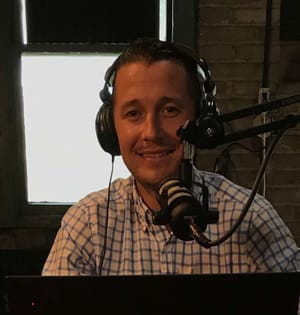When folks talk about Detroit, we hear the same words used over and over again: poor, broken, abandoned, blighted. But our experiences in the Motor City have shown us something completely different – a community that, in the face of overwhelming challenges, maintains a profound commitment to making Detroit a better place.
This juxtaposition of resilience and adversity, coupled with the city’s abiding innovative spirit, has made Detroit fertile ground for the dynamic programming that Libraries Without Borders (LWB) has pioneered for over a decade.
Libraries Without Borders is an organization that expands access to information, education and cultural tools to vulnerable people around the world. While we began our efforts in disaster relief and humanitarian emergency contexts, today we operate in many high need communities, in places just like Detroit. By reimagining the purpose, placement and design of libraries, we have successfully implemented programs that promote literacy, numeracy and digital literacy in over 35 countries.
But our mission extends far beyond improving educational outcomes or other traditional indicators of development. We are committed to providing people with access to the tools they need to live dignified and fulfilling lives, especially in the face of hardship.
In Detroit, we do this by partnering with local organizations and institutions to fill the gaps left by cuts to public services. Rather than remaking the wheel, we tap into local expertise to develop programs that support and amplify ongoing efforts.
When LWB first came to Detroit two years ago, we shuffled our Ideas Box – a mobile, pop-up library – to neighborhoods that were far-removed from the progress unfolding downtown. Using the Ideas Box as a convening space, we offered after school academic support, and supplemental learning opportunities on weekends and during winter break. We also organized community workshops on topics of interest to local residents, which were often booked to capacity days before the event.
Recognizing that folks were hungry for opportunities to learn new skills, we piloted a peer-to-peer professional development program (“Learning Circles”) at various Detroit Public Library branches. In partnership with Peer 2 Peer University (P2PU), we harnessed the city’s existing resources – namely, engaged librarians and dedicated citizens – to create spaces where community members could take free MOOCs (massive online open courses) to strengthen their professional development skills.
In the beginning, we hired a facilitator to oversee the first “Learning Circle” and help with troubleshooting. Within minutes, participants began to take on the facilitator role, guiding one another through video lectures and tutorials. Even when they had no prior knowledge of the subject at hand, participants were able to use the technology and materials provided to coach each other during the module. Since this first round of P2PU courses, participants have gone on to organize and lead “Learning Circles” of their own.
Our experience in these programs has taught us several key lessons. First, we learned that existing community resources are critical for impactful and effective interventions. By organizing meetings with community stakeholders in Detroit, we tapped into their expertise and identified the best ways to amplify their efforts. Second, we learned that collaborating with local partners who shared our mission and vision was not enough.
We also needed to know what each partner brought to the table. The third, and most challenging lesson, was knowing when our presence was no longer needed, and then stepping back. This year, we decided to do just that and pulled back our efforts significantly, confident the community could expand these learning opportunities without us.
Since then, community members like Qumisha “Q” Goss, a librarian at the Parkman Library Branch, have really stepped up to the plate. Q has championed “Learning Circles” and other innovative programs that help Detroit residents take advantage of the resources available in their communities.
When we last visited, she told us about another homegrown program: Detroit Soup. “Everyone throws in $5 and we invite our friends and family to pitch new ideas to help the community. We give the pot of money whoever gives the best pitch.” No formal recognition, no over-time compensation, no branded website – just a genuine desire to improve their community. These are the people Libraries Without Borders has had the privilege of working with in Detroit, and the reason we keep coming back.
As librarians, local organizations and community members continue to build “Learning Circles” in their homes, library branches and other public spaces, Libraries Without Borders will keep innovating new interventions in Detroit. This summer, through a new national partnership with the Coin Laundry Association, we’re unveiling a series of early literacy and professional development programs that will bring libraries to new and unconventional spaces.
The “Wash and Learn” initiative will take place inside – you guessed it – laundromats across the country, offering educational programming that aligns with wash and dry cycles. We can’t think of a better place to launch this program than in Detroit, where residents, businesses, and city government have embraced the spirit of innovation to push for progress each and every day.
Ed. Note: This is a piece as part of our “First Person” series, where we provide a platform for those involved in our region to tell their own stories. If you’re interested in participating, use our submit form and get in touch.










